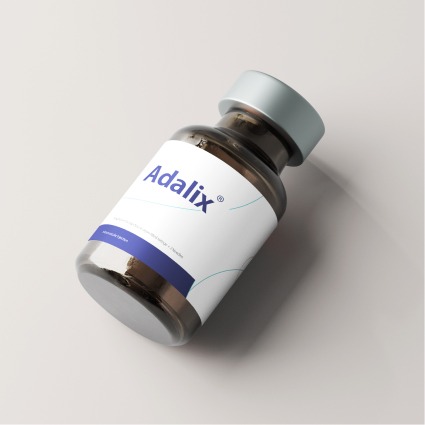Introduction
The United Arab Emirates (UAE) has emerged as a beacon of healthcare innovation in the Middle East, particularly in its approach to vaccination programs and healthcare budgeting. This article delves into the UAE’s healthcare revolution, examining how budget allocations have propelled the nation to the forefront of medical excellence. By comparing the UAE’s healthcare advancements with those of its GCC neighbors, we gain a comprehensive understanding of the region’s medical landscape and the unique position the UAE occupies within it. This exploration offers insights into the strategic planning, technological integration, and healthcare initiatives that have shaped the UAE’s healthcare sector, setting it apart as a model of excellence and innovation.
UAE’s Healthcare Evolution: A Regional Benchmark
The UAE’s healthcare system has undergone a remarkable transformation, becoming one of the most advanced and dynamic markets in the Middle East. This evolution is marked by significant investment in clinical research, manufacturing capabilities, and the establishment of world-renowned medical facilities like the Cleveland Clinic and Mayo Clinic-branded hospitals. The nation’s focus on developing high-quality healthcare infrastructure to address lifestyle diseases like obesity and diabetes has been pivotal in its journey toward becoming a regional medical tourism hub for specialty treatments.
Budget Allocation: Fueling Healthcare Growth
A critical driver of the UAE’s healthcare expansion is the government’s commitment to the sector, evident in its budget allocation. In the 2022 federal budget, 7.6% of public spending was dedicated to healthcare, highlighting the government’s prioritization of health and wellbeing. This investment has facilitated the creation of a robust healthcare infrastructure capable of meeting the diverse needs of the UAE’s growing population and supporting advanced medical research and services.
Vaccination Programs: A Model of Efficiency
The UAE’s efficient handling of the COVID-19 pandemic, underscored by the success of large-scale vaccine clinical trials and the establishment of a regional vaccine distribution hub, exemplifies its proactive approach to public health. The nation’s vaccination programs are not only a testament to its advanced healthcare infrastructure but also reflect its readiness to tackle global health challenges, positioning the UAE as a leader in vaccination initiatives.
GCC Healthcare Comparison: Regional Dynamics
When compared to its GCC counterparts, the UAE stands out for its rapid healthcare growth and strategic investment. Countries in the GCC, including Saudi Arabia, have also made significant strides in healthcare, but the UAE’s unique emphasis on innovation, technological integration, and medical tourism sets it apart. The nation’s approach to healthcare, marked by a blend of public and private sector collaboration, offers valuable insights into effective healthcare management and development strategies that could be beneficial to neighboring countries.
Innovation in Healthcare: Embracing New Technologies
A cornerstone of the UAE’s healthcare revolution is its embrace of cutting-edge technologies. From integrating artificial intelligence (AI) and blockchain in healthcare delivery to investing in wearable technology for personalized medicine, the UAE is at the forefront of medical innovation. These technological advancements not only enhance patient care but also position the UAE as a hub for healthcare innovation, attracting global attention and fostering international collaborations.
Sustainability and Future Directions
The UAE’s healthcare system is not only growing but also evolving with a focus on sustainability. The Emirates Health Services (EHS) Innovation Strategy 2023-2026 aims to create a sustainable healthcare future, addressing challenges like inflation and resource pressures. This forward-thinking approach ensures that the UAE’s healthcare sector remains resilient, adaptable, and ready to meet future health demands.
Localizing Technologies and Achievements in Oman: Towards Self-Sustainability
Introduction to Localization in Oman
Oman, like its GCC neighbor UAE, stands at a critical juncture in healthcare development. The necessity of localizing technologies and achievements observed in the UAE is paramount for Oman to achieve self-sustainability in healthcare. This section explores how Oman can adapt the UAE’s healthcare strategies and technological advancements to enhance its healthcare infrastructure and services. By examining the UAE’s successful healthcare model, we can identify key areas where Oman can benefit from similar approaches and innovations.
Adapting UAE’s Healthcare Strategies
The UAE’s strategic approach to healthcare, characterized by significant budget allocations and investment in technology, offers a blueprint for Oman. By adapting these strategies, Oman can enhance its healthcare infrastructure, improve patient care, and address its unique healthcare challenges. This includes investing in advanced medical facilities, promoting research and development, and integrating technology to streamline healthcare services.
Technological Integration for Enhanced Healthcare
Oman can learn from the UAE’s integration of AI, blockchain, and IoT in healthcare. Implementing these technologies can lead to more efficient healthcare delivery, personalized medicine, and improved patient outcomes in Oman. The adoption of wearable technology for continuous monitoring and early disease detection is another area where Oman can benefit from the UAE’s experience.
Public-Private Partnerships for Infrastructure Development
The UAE’s model of public-private partnerships in healthcare can be instrumental for Oman. Such collaborations can aid in developing Oman’s healthcare infrastructure, including the construction of new medical facilities and the improvement of existing ones. These partnerships can also facilitate the adoption of innovative healthcare solutions and attract investment in the healthcare sector.
Embracing Emerging Technologies
Oman can benefit from adopting emerging technologies like AR, VR, and 3D printing in healthcare, as seen in the UAE. These technologies have applications in surgery, rehabilitation, and medical training, which can significantly enhance Oman’s healthcare services. Investing in such technologies can also position Oman as a regional leader in innovative healthcare solutions.
Fostering Holistic and Home Healthcare
The UAE’s focus on holistic medicine and the growth of home healthcare services offer valuable lessons for Oman. Embracing a comprehensive approach to healthcare that includes traditional and alternative treatments can improve patient outcomes. Additionally, developing home healthcare services can cater to the needs of older people and those with chronic conditions, offering them personalized care in the comfort of their homes.
Ethical Considerations and Data Privacy
As Oman adopts advanced healthcare technologies, it must also consider the ethical implications and data privacy concerns. Ensuring the protection of patient data and addressing ethical dilemmas in genetic testing and personalized medicine is crucial. Oman can look to the UAE’s regulatory framework and guidelines to develop robust policies that safeguard patient rights and privacy.
The Road Ahead: Oman’s Healthcare Future
In conclusion, Oman has the opportunity to transform its healthcare system by localizing the technologies and advancements observed in the UAE. By adapting the UAE’s successful healthcare strategies and embracing innovation, Oman can achieve self-sustainability in healthcare. This journey towards a robust and advanced healthcare system will not only enhance the quality of life for its citizens but also position Oman as a leader in healthcare innovation in the region.
Summary
The UAE’s healthcare revolution, characterized by strategic budget allocations and a commitment to innovation, serves as a model for the GCC region. Its advanced infrastructure, focus on personalized medicine, and integration of emerging technologies demonstrate a healthcare system that is not only efficient but also forward-looking. The UAE’s approach provides valuable lessons for countries like Oman, which can benefit from adopting similar strategies to enhance its healthcare sector. As the UAE continues to lead in healthcare innovation, it sets a benchmark for excellence and sustainability in the region. It offers a blueprint for other nations to follow in their pursuit of advanced, patient-centric healthcare systems.

